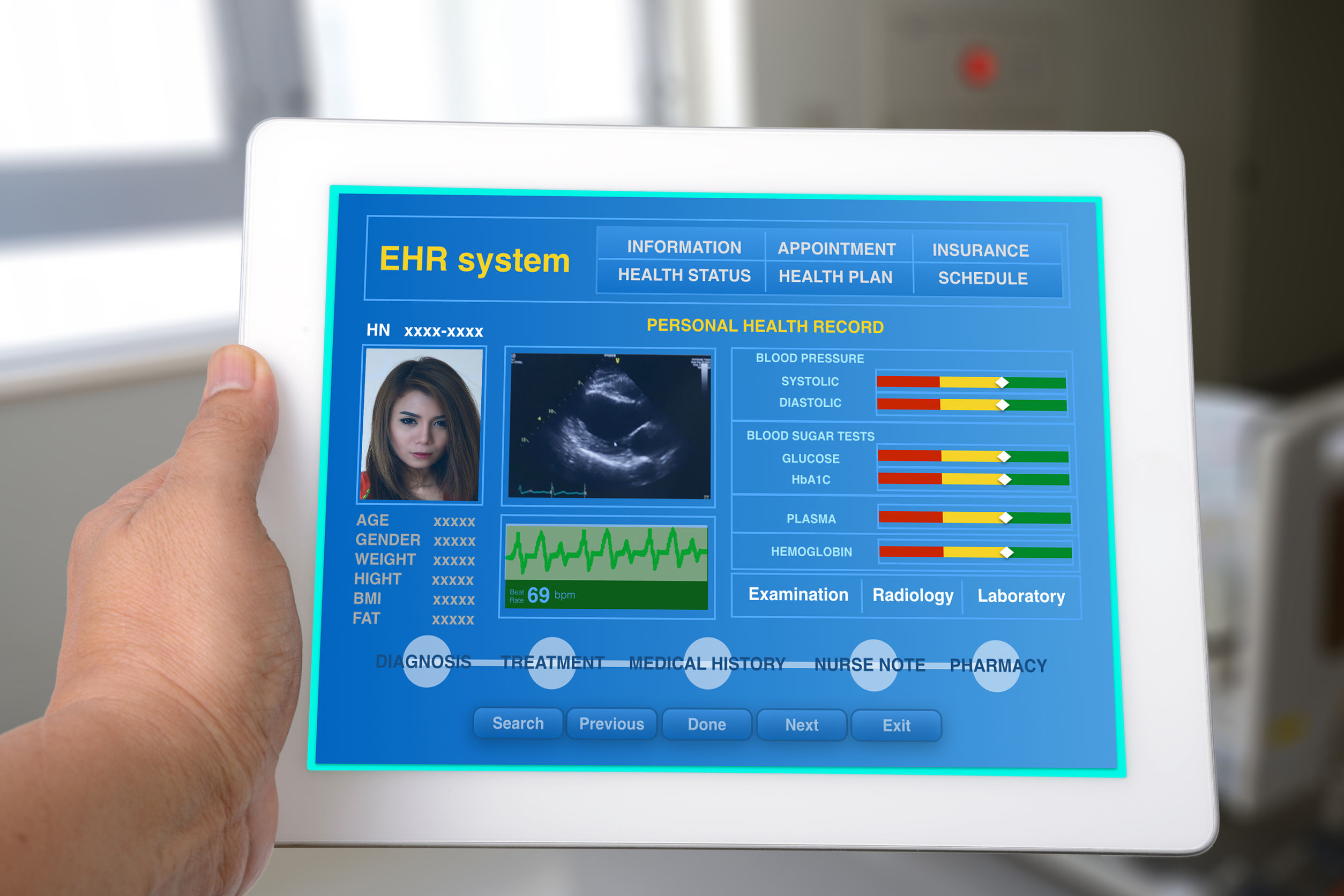For those who’ve been in the healthcare industry for quite some time, answering the question of “what is EMR” is a no-brainer. However, for those just dipping their toes in the career, you might not know what it is or have even heard of the term. Despite it being a common FAQ on many medical sites, the term might be disappearing altogether. Below, we’re going to take a look at EMR, how they relate to EHRs, and why we probably won’t be talking about them in the near future. So, what is EMR? Let’s take a look!
What is EMR
The first thing we need to do is answer the question, “what is EMR.” EMR stands for “electronic medical record.” Essentially, EMRs were created to replace the traditional paper charts. You’ve probably seen the TVs and movies where the doctors stare at a clipboard looking baffled at a patient’s prognosis. This usually doesn’t happen anymore. If a doctor or any health professional is looking at patient data, it’s most likely going to be on a tablet or computer. These records are normally stored on cloud-based software, greatly reducing the possibility that a patient’s records could be mixed up or displaced.
What Do EMRs Do?
Now that we’ve answered the question of “what is EMR,” let’s take a look at what exactly they do. We mentioned above that they’ve replaced traditional medical charts, but that’s just the tip of the iceberg. An EMR contains medical treatment and treatment history. Not only that, but it also gives access to everyone working within that medical facility. Charts and papers no longer need to be passed back and forth. Instead, doctors can access the medical records of a patient at a moment’s notice. You can also easily order medication directly from the EMR software as well as schedule tests and appointments that they may need. Essentially, the EMR was created to streamline an outdated process.
EMR VS EHR
This brings us to the debate between EMR and EHR. We know that EMR stands for electronic medical records. EHR, on the other hand, stands for “electronic health records.” They seem like the same thing, right? Not exactly. Not only does an EHR track medical records, but it also takes a much broader view of a patient’s overall health. While an EMR focuses on the current diagnosis and treatment for the specific facility, an EHR focuses more on continued treatment and this information is often shared with a variety of other people including insurance providers, specialists, and the patients themselves.

This information moves with the patient. It can move to the specialist, the hospital, the nursing home, the next state or even across the country. EHR systems are designed to be accessed by all people involved in the patient’s care, including the patients themselves. Most EHRs will provide easy-to-read summaries so patients know exactly how their health is being managed.
The Death of the EMR
We’re still seeing “what is emr” as a common question in many Google searches in FAQs. However, this might not be for long. When we take a look at the comparison between EMRs and EHRs, many see EMRs have a more rudimentary version of the EHR, and they’re not far off. As medical facilities expand under larger umbrellas, EMRs just don’t have the capabilities to transfer information between a variety of health providers. This is why we’re seeing less and less EMRs in medical facilities, and more EHRs being implemented. The software is also just better. With a variety of capabilities needed, EHRs often have IT support that will ensure the programs are running as smoothly as possible. All of these advanced capabilities are slowly making EMRs more and more obsolete.
Are you using EMRs or EHRs? Tell us in a comment below!
